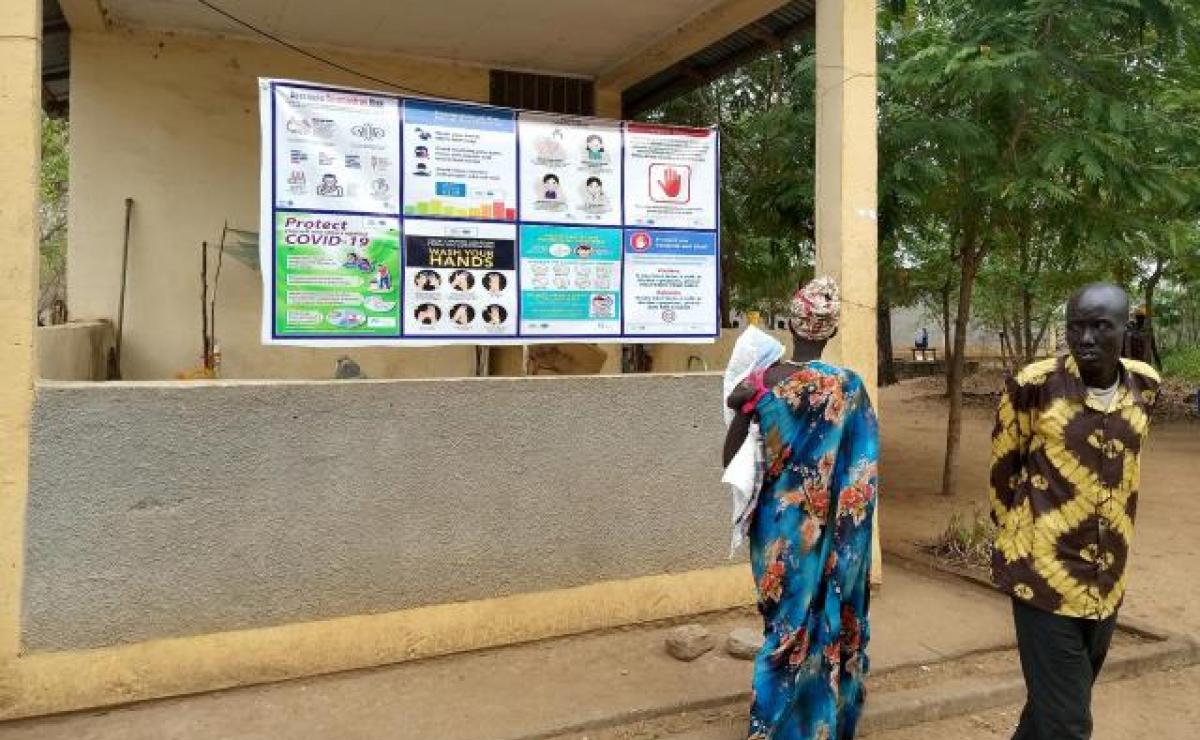COVID-19: Protecting Ethiopia’s rural communities

World Service staff scaling up awareness raising and prevention among refugees and host communities
(LWI) - In Ethiopia, where The Lutheran World Federation (LWF) works in remote rural areas with refugees and host communities, World Service field staff are focusing on awareness raising and prevention to stop the transmission of the Coronavirus disease (COVID-19) from cities where cases have so far been reported.
As soon as the government announced the first case of the virus on 13 March, the LWF team in Gambella, on the border with South Sudan, met to scale up prevention measures and request personal protective equipment.
LWF staff carry out awareness raising campaigns using LWF banners and posters placed in strategic locations such as the health center and market place in Jewi refugee camp in Gambella.
As of 27 April, Ethiopian authorities had confirmed 123 cases and three deaths, mainly in the capital, Addis Ababa, but also in Amhara in the northwest, in Adama Nazareth, capital of Oromia state, south of Addis Ababa, and in Dire Dawa city in the east of the country.
Most of the cases have been identified as foreigners arriving in the country or Ethiopians returning from overseas, mainly from the Gulf states, Europe or North America. The main international airport in Addis Ababa is a major gateway and transit hub for other countries on the African continent. The government has ordered a two-week quarantine period for any newly arriving passengers and closed the country’s land borders as a major part of its strategy to contain the spread of infections.
Regulations challenging for rural communities
Ethiopian authorities have also shut schools and universities, banned large gatherings and are promoting social distancing and hand washing to protect people from the virus. They have identified two large hospitals, one for testing and the other for treatment of Coronavirus patients, but as in many other countries, there is a lack of tests and protective clothing for doctors and medical personnel.
Social distancing is a major challenge for many of the communities where LWF World Service is working. More than 80 percent of Ethiopia’s population lives in rural areas and relies heavily on agriculture or causal daily labor for livelihoods. There are widespread concerns that many people will lose their only source of income if they follow government directives and have no reserves for themselves or their families to fall back on. Soap, sanitizers and clean water are not readily available for many people.
Assistance and training for refugees
Ethiopia is one of the world’s fastest growing countries, with an estimated population of 110 million people. It is also home to the continent’s second largest refugee community, with an estimated 900.000 refugees and asylum seekers who have fled from conflict or insecurity in Eritrea, Somalia, Sudan and South Sudan.
LWF is working with UNHCR and the Administration for Refugees and Returnee Affairs in Jewi refugee camp, distributing hand washing buckets to help prevent infections.
LWF programs assist many of these people with agricultural development through small-scale irrigation schemes, water sustainability, training and technical support, as well as financial aid. Livelihood development programs combine seed and tool distribution with training in multi-story gardening, poultry and vegetable production. Since the outbreak of COVID-19, LWF staff have distributed hand-washing buckets and conducted a public service campaign among the communities they serve, enabling people to be better informed and adapt their behavior to protect themselves from infection.
LWF also supports tens of thousands of refugees with education, community-based psychosocial assistance and environmental conservation, as well as water and sanitation programs for internally displaced people. By assisting both refugees and host communities, staff seek to reduce the potential for conflicts than can develop over scarce water resources. Climate change in the region is threatening to exacerbate major existing challenges of food insecurity, water stress, migration and internal displacement.

